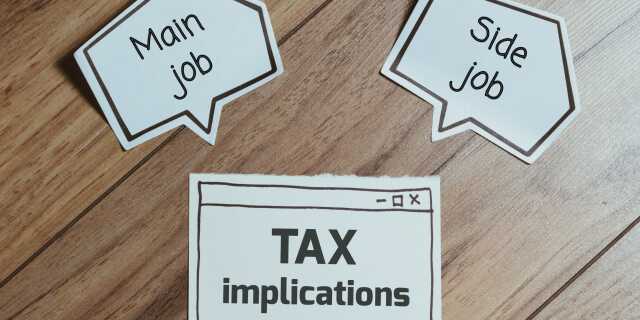Understanding the Tax Implications of Your Side Hustle

In today's gig economy, many people are exploring side hustles to supplement their income or pursue their passions. Whether you're selling homemade crafts online, driving for a ride-sharing service, or offering freelance services, your side hustle can have tax implications that you need to be aware of. To follow are some of the key considerations to help you stay on the right side of HM Revenue & Customs (HMRC).
1. Reporting Your Side Hustle Income
The first and foremost rule of tax compliance in the UK is to report all your income, including earnings from your side hustle. Whether you're paid in cash, through digital payment platforms like PayPal, or any other means, it's your responsibility to declare this income to HMRC.
2. Self-Employment Taxes
In the UK, your side hustle earnings are typically taxed as self-employment income if you operate as a sole trader. This means you are responsible for paying both the employee and self - employed portions of National Insurance (NI) contributions.
As these rates may change over time, it's crucial to check the latest figures on the HMRC website - Self-employed National Insurance rates - GOV.UK (www.gov.uk)
3. Deducting Business Expenses
The good news is that you can reduce your taxable income by deducting certain business-related expenses. Common deductible expenses for side hustlers in the UK include:
Supplies and materials
Home office expenses (if you work from home)
Advertising and marketing costs
Travel expenses directly related to your side hustle
Insurance premiums
Professional fees (e.g., fees paid to an accountant)
Keeping accurate records of these expenses is essential. HMRC may request proof of your deductions if you're audited, so ensure you retain all relevant receipts and documentation.
4. Registering as Self-Employed
If your side hustle generates significant income or you plan to continue it over the long term, you may want to consider registering as self-employed with HMRC. This formalizes your status as a sole trader and ensures you comply with all tax obligations.
To register as self-employed, you can use the HMRC online portal or call the Newly Self-Employed Helpline. Remember that you must register by October 5th in your business's second tax year, or you could face penalties.
5. National Insurance Contributions (NICs)
National Insurance is an important consideration for UK individuals with a side hustle. NICs contribute to your eligibility for certain state benefits, such as the State Pension and Maternity Allowance.
Make sure you're aware of your NICs obligations and check if you qualify for Small Profits Threshold (SPT) or the Flat Rate Scheme, which can simplify your contributions.
6. Estimated Taxes
Unlike traditional employment, where taxes are automatically deducted from your salary, side hustlers are responsible for calculating and paying their taxes themselves. To avoid a hefty tax bill at the end of the tax year, it's advisable to make estimated tax payments to HMRC on a quarterly basis.
Estimating your tax liability can be complex, so consider seeking assistance from an accountant or using HMRC's tax calculator tools to ensure you set aside the correct amount.
7. Tax Credits and Deductions
Depending on your income and personal circumstances, you may be eligible for various tax credits and deductions in the UK, such as the the Marriage Allowance.
Marriage Allowance: How it works - GOV.UK (www.gov.uk)
Taking advantage of these credits and deductions can significantly reduce your overall tax liability, so it's essential to explore your options and consult with a tax professional if necessary.
8. Seek Professional Advice
UK tax laws are subject to change, and they can be intricate, especially for individuals with side hustles. It's highly recommended to consult with a qualified tax professional or accountant who can provide personalised guidance and help you navigate the tax implications of your specific side hustle.
Considering all this.......
Whilst a side hustle can provide valuable additional income, it also comes with tax responsibilities in the UK. Reporting your income accurately, paying self-employment taxes, deducting eligible expenses, and staying informed about tax laws are essential steps to ensure you're compliant with HMRC regulations. By taking these measures and seeking professional advice when needed, you can enjoy the benefits of your side hustle without running into tax-related troubles.